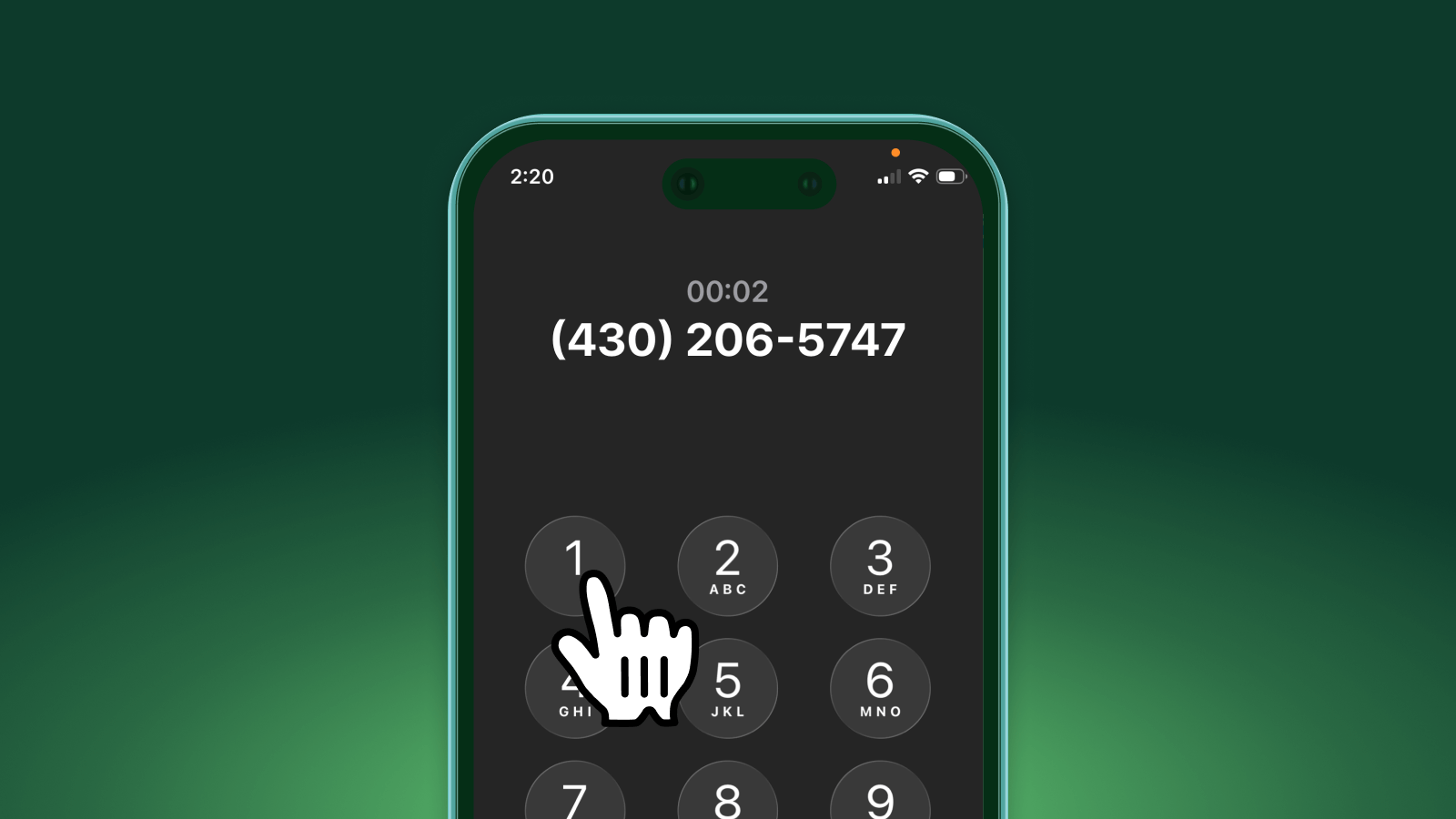- Set the right tone - speak clearly and professionally while actively listening to customers and using verbal affirmations to show understanding
- Focus on first-call resolution by using your CRM effectively, asking open-ended questions, and having clear escalation procedures
- Keep customers informed with updates and offer callback options to avoid long hold times and reduce frustration
For businesses trying to keep up with customer’s expectations of answering the phone after the first ring to getting an immediate reply back via live chat, the stakes are high. Even with responsive AI-powered chatbots and DM channels, 50% of customers still prefer talking over the phone, especially those looking for an extra dose of empathy.
A single negative interaction can corrode a brand’s reputation and even drive customers away for good. With rising customer expectations and the pressure to deliver instant solutions, businesses must adapt to provide exceptional customer service across all channels, including phone support. Here we’ll outline the importance of excellent customer service delivered over the phone and a handful of tips to share with your customer service team.
The importance of phone customer service
From advanced AI chatbots to caller sentiment analytics, technology has helped businesses understand how their customers communicate,. Phone calls offer a unique opportunity to bridge the digital divide and provide personalized, empathetic support. Whether it’s resolving complex issues or simply offering a friendly ear, phone conversations allow us to build genuine connections and create lasting customer relationships.
11 Tips for effective customer service over the phone
Effective customer service over the phone is more than just answering calls; it’s about building relationships, solving problems, and leaving a positive impression. By putting essential tips into practice, you can transform ordinary phone calls into extraordinary customer experiences.
Find the right tone for your voice
Your voice is a powerful tool in customer service, so make sure to strike a friendly tone. Speak clearly and at a pace that customers can understand, especially when you’re explaining step-by-step instructions or complex processes. Filler words like “um” and “like” may come across as unprofessional, and customers appreciate a level of confidence to handle their issues over the phone.
Actively listen to the customer
Conversations over the phone benefit from active listening, so make each connection count. By understanding your customer’s needs, you can provide effective solutions and build stronger relationships. Remember to use verbal affirmations like “I understand” or “that makes sense”, summarize key points, and ask clarifying questions to show you’re paying attention to all the details.
Ask powerful questions
Open-ended questions can take the conversation further and provide more value for both the customer and the representative. For example, instead of asking, “Is everything okay?”, try asking, “Can you tell me more about your experience?” or “What specifically can I help you with today?” Getting a better understanding of all the details gives you more context and relevant ways to solve their problems quickly.
Balance script usage and personalization
While scripts can help guide conversations, they can sometimes make interactions feel impersonal – which is not the goal. To build trust and rapport with customers, aim for a natural and conversational tone. Use the script as a prompt, but don’t be afraid to deviate from it so you can offer personalized solutions.
Get efficient with CRM and knowledge bases
With a powerful CRM and knowledge base, you can access customer history, past interactions, and relevant solutions in real time. This means faster resolution times, fewer callbacks, and happier customers.
Maximize first call resolution (FCR)
Your goal is to solve customer issues on the first call. Use decision trees to guide your troubleshooting step by step, reference your knowledge base for quick answers, or use screen-sharing to help them connect the dots visually. Remember, the more efficient you are, the more satisfied your customers will be.
Learn to manage difficult callers
Emotions may run high at times, so it’s important to tap into your emotional intelligence to provide the best level of support for intense conversations. Use phrases like, “I understand your frustration” or “Let’s work together to find a solution.” Stay composed so you can de-escalate situations, ease frustrations, and find common ground.
Establish clear escalation procedures
Sometimes, customer service representatives may need support from higher up. When a situation becomes too challenging to handle, know when to hand off the call to a supervisor or specialist. Have established procedures at your fingertips and follow along, that way, customer issues are resolved as efficiently and effectively as possible.
Be smart about call routing
Smart call routing is like having a personal assistant for your calls – matching customers’ most pressing needs to the most helpful agent expertise. Using technology like a virtual receptionist, to direct calls to the most qualified agents typically leads to better outcomes. Callers deserve less time on hold, fewer transfers, and, of course, a direct link to a resolution.
Offer customers a callback option
Long wait times lead to a poor customer experience. Offer your customers the convenience of a callback option – this simple gesture can make a big difference for even the most impatient callers. By allowing customers to go about their day while you work on their issues, you’ll keep frustrations low and build trust in the process.
Keep customers informed with updates
It may sound simple, but status updates are important, too. Whether it’s a simple text message or a detailed email, let customers know you’re working on their problem. By keeping customers in the loop, you’ll show that you value their time and are committed to providing excellent service.
Take the next step to improve customer service over the phone
Providing better customer service is more than picking up the phone right away and greeting them with a bright “How can I help you today?” – it’s about solving problems and delivering positive experiences. Effective customer service requires a careful balance of technology and relatability. A friendly voice and open-ended questions can soften frustrations, but having customer data on hand can also help guide you toward a final resolution on the first call.
To create a balance that supports your customer experience team, try Upfirst. Our AI-powered answering service works seamlessly with your team, providing real-time assistance with managing conversations and gathering customer insights. Routine tasks are automated, freeing up your phone agents to focus on building meaningful connections with customers. Plus, calls are routed intelligently so customers with specific issues reach the right agent every time.
Better phone conversations are possible. Let’s work together to create a more efficient, effective, and customer-centric operation.
Nick Lau is a copywriter and content lead for Upfirst.ai. A self-starter at heart, he dove into marketing in 2015 by launching an e-commerce company, selling private-labeled products on Amazon and Shopify. When he’s not crafting copy, you might spot him on a winding road trip to the coasts or through forests, in search of unexplored places.








